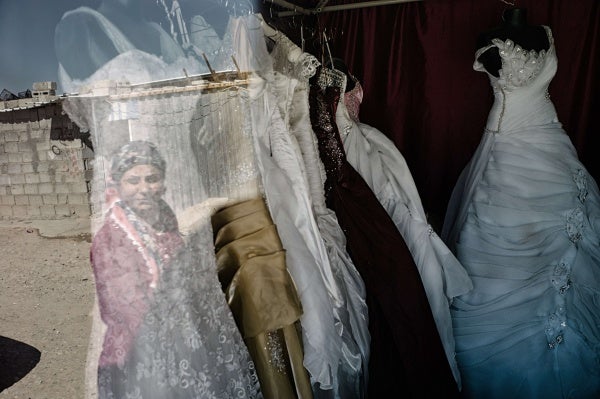Lire la version en français / Hier die deutsche Ausgabe lesen
In the devastating conflict that’s been raging in Yemen for years, the warring parties sadly seem to agree on one thing: treating women as second-class citizens.
All authorities across Yemen’s fractured political landscape are increasingly restricting women’s freedoms. Primarily, they deny women’s freedom of movement, which undermines many other fundamental rights. Restrictions on movement harm women’s ability to access work, education, and health care.
It doesn’t matter which side of the conflict you look at; all sides are violating women’s rights. The Houthis, the Yemeni government, and the Southern Transitional Council, are all systematically violating women’s right to freedom of movement.
Authorities throughout the country are barring women from traveling between governorates without a male guardian’s permission or being accompanied by an immediate male relative. In some cases, women are also prevented from traveling abroad without a male guardian’s permission.
The proliferation of roadside checkpoints has allowed for these unjust restrictions to be enforced more frequently. Women interviewed for a new report said they had often been forced to turn around at checkpoints or stopped and harassed for hours when in a car without a male relative.
The very concept of a woman needing a “male guardian” to move from point A to point B is bad enough, but it gets worse. How “male guardian” is defined adds further humiliation on top of the discrimination. For example, a woman in her 50s was forced to get her son’s approval before she could travel. Her son was 14 years old.
What’s more, if a male guardian reports a woman to the police for traveling against his wishes, the Interior Ministry and security offices can arrest her.
The restrictions have made it more difficult for women to access higher education. In some cases, drivers have refused to take women to college campuses because they know the problems they will face at checkpoints.
Some checkpoint officials have specifically targeted women working with nongovernmental groups and humanitarian workers. The movement restrictions have in fact forced many Yemeni women to leave their jobs at aid organizations and UN agencies.
The result is doubly grim. The women lose much-needed income for their families, and a country full of people dependent on international assistance is deprived of these women’s knowledge and experience in the aid sector.
As my expert colleague Niku Jafarnia says, “Instead of focusing their efforts on ensuring that people in Yemen have access to clean water and adequate food and aid, warring parties are spending their energy raising barriers to women’s freedom of movement.”





